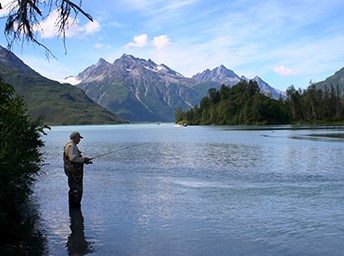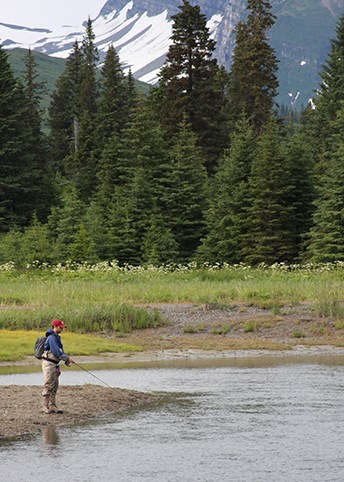
NPS Photo / M. Richotte Lake Clark provides excellent fishing opportunities for adventurous anglers. The park and preserve includes some of the most pristine fishery habitats in the National Park system. In fact, one of the original purposes in the founding legislation is preservation of the watershed for the perpetuation of the sockeye salmon fishery. This fishing season runs primarily from May through October, with the peak season in July and August during the salmon runs. Lakes may not be ice free until June. Ice fishing is also a popular activity in winters when the lakes freeze. The National Park Service and the State of Alaska cooperatively manage the fish in Lake Clark; therefore, you must possess all required Alaska state fishing licenses and tags, and you must comply with State of Alaska fishing regulations. Where to Fish Mountain lakes and streams nestled among the jagged spires of the Alaska Range contain a combination of arctic char, arctic grayling, Dolly Varden, lake trout, rainbow trout, northern pike, and all five species of pacific salmon. Listed below are just a few places you can try your luck. Crescent Lake Silver Salmon Creek Key: ● = Present

NPS Photo / K. Jalone Fishing in Bear Country It is important that we don't teach bears that anglers can provide an easy meal! Bears Have Rights to the Prime Fishing Sites
Splashing Fish Attracts Bears
Secure Your Catch
Fish and Travel in the Open
| ||||||||||||||||||||||||||||||||||||||||||||||||||||||||||||||||||||||||||||||||||||||||||||||||||||||||||||||||||||||||||||||||||||||||||||||||||||||||||||||||||||||||||||||||||||||||||||||||||||||||||||||||||||||||||||||||||||||||||
Last updated: September 14, 2017
